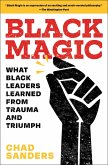On the eve of the Civil War, Alexandria, Virginia, was a bustling city with a rich cultural heritage and a booming economy. Alexandrians staunchly supported staying in the Union, and yet once Virginia voted to secede, the community sent its men off to fight for the Confederacy. This shift in political allegiance was not dissimilar to changes occurring across the Upper South. What made Alexandria significant was that a community of 12,600 residents provided leadership and excellence disproportionate to its numbers. Alexandria Goes to War chronicles the lives of men and women whose service made the city unique in the exceptional quality and variety of talent it provided to the Confederate cause. Some of these sixteen individuals are familiar to Civil War readers as their contributions to the southern war effort brought them special notoriety: General Lee, of course, and his son Custis; Samuel Cooper, the senior general in the Confederate army; and Commodore French Forrest. For others less well known-attorneys George Brent and Douglas Forrest, engineer Wilson Presstman, politician Daniel Funsten, student Randolph Fairfax, and immigrant Patrick O'Gorman-the Civil War provided an opportunity to exercise their full talents. Alexandrians Orton Williams and Frank Stringfellow became celebrated for their colorful adventures. Montgomery Corse's life paralleled major developments in mid-nineteenth-century America. Alexander Hunter went on to become a noted author of Civil War remembrances. Kundahl also examines the fate of Anne Frobel, a Southern sympathizer who spent the entire war behind Union lines. The survey concludes by reflecting on the role of Edgar Warfield, who well represents those forlorn survivors of the Lost Cause. Taken as a whole, these profiles constitute a microcosm of the South's desperate gamble to secede from the Union and form its own nation. The accounts of their service represent not only a single community's contribution to the redefining contest in American life but also highlight the diverse endeavors that constituted the southern war effort. Their stories reflect the sacrifices made throughout the region for a cause that became hopeless. George G. Kundahl served as executive director of the U.S. Securities and Exchange Commission and as a principal deputy assistant secretary at the Department of Defense. After thirty-four years of commissioned service in the U.S. Army, he is now major general, US Army Retired. A graduate of Davidson College, he received an M.A. and Ph.D. in political science from the University of Alabama. Kundahl is the author of Confederate Engineer: Training and Campaigning with John Morris Wampler. He and his wife divide time between their home in Alexandria and the French Riviera.
Hinweis: Dieser Artikel kann nur an eine deutsche Lieferadresse ausgeliefert werden.
Hinweis: Dieser Artikel kann nur an eine deutsche Lieferadresse ausgeliefert werden.








